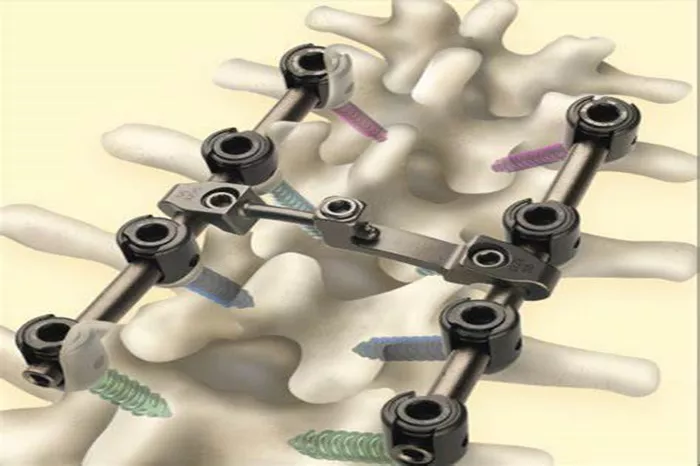Unilateral pedicle screw (UPS) fixation is increasingly used in oblique lumbar interbody fusion (OLIF) surgery. However, the strength of internal fixation needed for OLIF remains debated. Although OLIF combined with UPS has shown good short-term results, questions remain about how well it maintains stability in the long run, as few mid- to long-term studies exist.
This study compared mid- to long-term outcomes of unilateral versus bilateral pedicle screw (BPS) fixation in one-level OLIF for lumbar degenerative disease (LDD). The study included 186 patients, with 100 receiving UPS and 86 receiving BPS. Patients were followed for an average of about 75 months.
Results showed that surgery with UPS took less time and caused less blood loss compared to BPS. There was no significant difference in complication or fusion rates between the two groups. Patients in the UPS group reported less low back pain six months after surgery compared to those in the BPS group. However, pain and disability scores were similar at all other follow-up times.
The rate of adjacent segment degeneration (ASD) was lower in the UPS group (12%) than in the BPS group (18.6%) at the final check. Also, the multifidus muscle, important for spinal stability, showed less fat infiltration and better muscle condition in the UPS group.
Overall, the findings suggest that UPS fixation in OLIF surgery for single-level LDD provides mid- to long-term results comparable to bilateral fixation. UPS offers benefits such as shorter surgery time, less blood loss, and better preservation of muscle quality.
Related topics:
- LANG Electronics Inc. Launches P.LANE Type 436 All Tube Varimu Compressor
- Dyson Launches Ultra-Slim PencilVac, Calling It “The Broom of the Future”
- Eco-Friendly, High-Tech Lawn Mowers Fuel Steady Market Growth Through 2035

